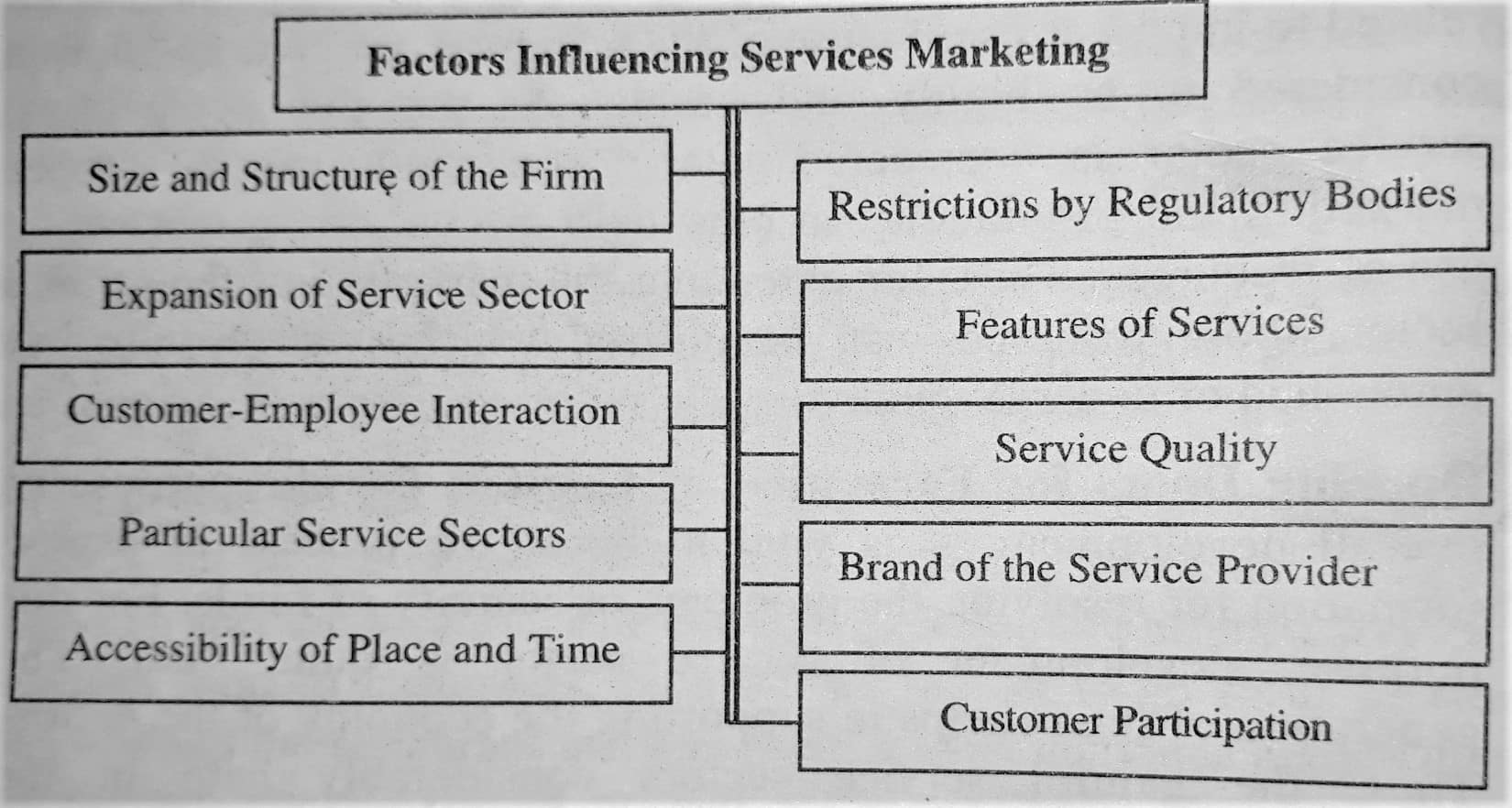Various factors affecting services marketing are as follows:
1. Size and Structure of the Firm
Traditionally, various service providers such as lawyers, plumbers, accountants, and carpenters specialised in their respective fields and primarily catered to their local communities. Furthermore, there was neither a necessity to employ marketing experts within these firms nor a significant competition due to their limited operation size and localised service.
2. Restrictions by Regulatory Bodies
Several service providers are currently facing limitations imposed by regulatory bodies. These restrictions primarily curb the volume and type of advertising, particularly in the medical and legal professions. Additionally, rules and regulations also restrict the commercial activities of charitable services and public sectors.
3. Expansion of Service Sector
The expansion of the service sector, which includes banking, hospitality, tourism, etc., has given rise to innovative marketing concepts. New technologies and ideas have been instigated by the development of the service sector. Marketing plays a pivotal role in the advancement and success of various service sectors. Today’s service sector is designed according to consumer needs, catering to the actual demands of the market rather than preconceived notions about the same.
4. Features of Services
Depending upon the features of services, such as intangibility, indivisibility, heterogeneity, and perishability, marketing strategies need to be devised. Based on these variations, diverse marketing strategies should be planned, emphasising those features that consumers deem significant.
5. Customer-Employee Interaction
In the marketing of services, it’s crucial to establish a good relationship with customers. As a result, soft skills and business etiquette play a significant role. Recently, a few more related concepts have emerged, namely relationship marketing and internal marketing. These ideas are widely accepted in conventional marketing and are also utilised beyond service marketing.
6. Service Quality
The quality of services and programmes for delivering high-quality services play a pivotal role in services marketing. The marketing of these services emphasises on enhancing the quality based on a deeper understanding of what customers perceive as ‘quality services’.
7. Particular Service Sectors
Recently, certain services have piqued the interest of marketers, specifically professional services and non-profit organisations. In these sectors, moral values and principles are deemed essential. Some public sectors also adhere to these obligations. These service sectors have thrived by implementing marketing strategies devised by experts.
8. Brand of the Service Provider
Sometimes, what the customers are looking for is the ‘brand.’ The branded organization is considered important for the customers, and the brand helps in creating brand loyalty.
9. Accessibility of Place and Time
Customer interaction plays a pivotal role in marketing services. It is the ethical responsibility of the service provider to deliver the promised services in line with the customers’ expectations. Any failure to do so can result in losing the customer’s trust, who may then switch to another brand.
10. Customer Participation
This factor merits significant attention from all firms while marketing their services. Only through the customer’s involvement with the service organization can they develop a sense of belonging. However, the degree of customer participation can vary based on their past experiences and personal preferences. Therefore, while marketing services, this factor should be given due consideration.
